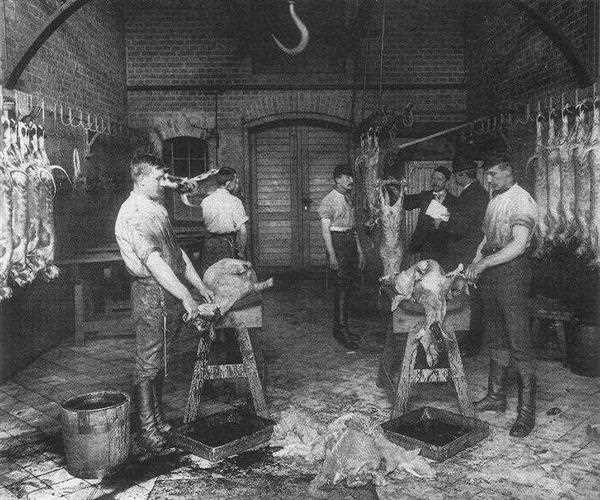The Slaughterhouse Cases planted the seeds of financial freedom and substantive due process, ideas that would eventually shape the reason for a gigantic fight in court that would come full circle amid the New Deal time of President Franklin Roosevelt.

To set the foundation to the case, we started with a dialog of the Constitution, the archive which called the government into reality. It accommodated an administration of restricted, counted powers. On the off chance that the power wasn't identified, at that point, it couldn't be worked out.
It was the other route around for the states. The Constitution didn't identify the forces of the states. That is on account of the states were approved to practice whatever forces they needed, except if such powers were explicitly denied by the Constitution (or constrained or disallowed by the express' own constitution). For instance, the states were explicitly precluded by the Constitution from making anything other than gold and silver coins a medium of trade.
Things being what they are, at that point why was it important to change the Constitution with the initial ten corrections, which explicitly limited the government's encroachment on basic rights and ensured imperative procedural insurances? The appropriate response is on the grounds that the American individuals weren't persuaded that the listed forces idea would work to compel the kind of individuals that would be pulled in to work for the central government. They needed to express securities, which was what the Bill of Rights was about.
After the Civil War, the Constitution was revised with the Thirteenth Amendment (bondage), the Fourteenth Amendment (due process and benefits and invulnerability), and the Fifteenth Amendment.
The Slaughterhouse Cases included the concede of a restraining infrastructure by the Louisiana assembly to a private enterprise in New Orleans to work the main slaughterhouse in the city. Every single other slaughterhouse were required to shut down. Any individual who wished to butcher would be allowed to do as such by utilizing space inside the syndication slaughterhouse.
The state legitimized the law under the "police powers" of the state. Those were powers that truly included fallen inside the sovereign forces of government. The police-powers idea, which extended once more into English and European history, obviously didn't make a difference to the national government in light of the fact that the central government had no sovereign forces — its forces were constrained to those listed inside the Constitution. Be that as it may, the idea still connected to the states.
The legal advisor speaking to the offended parties in the Slaughterhouse Cases was a splendid lawyer named John A. Campbell, who had been serving on the U.S. Preeminent Court at the episode of the Civil War. Trusting that he expected to battle in favor of his nation, he surrendered his lifetime arrangement on the Court and came back toward the South to wind up Assistant Secretary of War in the Confederacy. Toward the finish of the war, he was captured and detained for a half year. Starting from the very beginning again in New Orleans, he went up against the instance of the Louisiana butchers.
Yet, the genuine importance of the Slaughterhouse Cases lay with the contradicting conclusions, particularly the one by Justice Stephen J. Field, who himself had a beautiful lawful profession. He had started specializing in legal matters on the east drift, yet then set out for an existence of enterprise by taking a ship around South America to California amid the Gold Rush. After a fruitful legitimate vocation out west, he was selected to the U.S. Incomparable Court, which made him move to Washington, D.C.